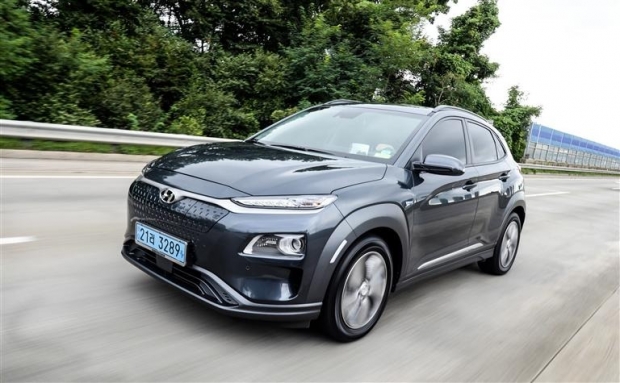Hyundai Motor Company recalls all vehicles that are likely to cause fire due to battery defects, such as Kona Electric Vehicles (EV). The target vehicle is 8,1701 units, including Kona EV, Ioniq EV, and Electic Bus produced from November 2017 to March last year.
The Ministry of Land, Infrastructure and Transport said, “It was confirmed that some of the high-voltage batteries produced at LG Energy Solutions’ Nanjing plant in China could cause a fire due to internal short circuit due to poor cell manufacturing (folding of the negative electrode tab).” “Corrective measures to replace all high-voltage battery systems ( Recall)” announced on the 24th. The recall cost is expected to reach 1 trillion won. It has yet to be decided how Hyundai Motor and LG Energy Solutions will share the recall cost.

◆“The cause of the battery cell negative tab folding”
The Ministry of Land, Infrastructure and Transport announced the results of a joint investigation by the Automobile Safety Research Institute (KATRI) and related experts. KATRI and others conducted a detailed investigation of the high-voltage batteries collected by recall from October last year to the latest and conducted a fire reproduction experiment. The Ministry of Land, Infrastructure and Transport revealed that it has confirmed that there is a possibility of a fire due to misalignment inside the battery cells. When the negative electrode tab in the battery cell folds, lithium by-products are formed at the negative electrode, and if this by-product diffuses to the positive electrode and contacts the positive electrode tab, a short-circuit phenomenon occurs where the negative electrode and the positive electrode tab adhere to each other, leading to a fire. He added that although the Ministry of Land, Infrastructure and Transport is conducting a reproduction experiment, no fire has occurred yet.
The Ministry of Land, Infrastructure and Transport also confirmed the misapplication of the charging map logic when updating the electric vehicle battery management system (BMS), and announced that it will further investigate whether there is a possibility of a fire. At the same time, he said that further investigation was needed because no significant difference was found whether or not the misapplication of charging map logic leads to fire.
The recall begins on the 29th of next month. It is known that the US and abroad will apply for a recall sooner or later. An official from the Ministry of Land, Infrastructure and Transport said, “Hyundai Motor and LG Energy Solutions have decided to replace all existing battery systems with improved products to protect consumers, even though the defect investigation has not yet been completed.” I plan to do it.” Most of the recall targets are Kona EVs (75,680 units).
◆Who will pay for the recall?
Hyundai Motor Company and LG Energy Solution agreed to a preemptive recall, but responded to the reason for the fire and the cost sharing ratio. Hyundai Motor Company said, “The recall cost is expected to be about KRW 1 trillion, and it will be calculated as the final quality cost by reflecting the share rate in the future.” In addition, he added, “The recall cost will be reflected in the business performance in the fourth quarter of 2020.”
Hyundai Motor believes that LG Energy Solutions, a cell manufacturer, is responsible for the fault as the Ministry of Land, Infrastructure, and Transport has pointed out the faulty alignment of the battery cells as the cause of the fire. The battery that goes into the vehicle is supplied to Hyundai Motor Vehicles through processes such as LG Energy Solution (cell) → HL Green Power (battery pack), a joint venture between Hyundai Mobis and LG Energy Solution, → Hyundai Kepico (BMS system) → Hyundai Mobis (final module). It is mounted.
LG countered that it cannot accommodate battery cell defects. After the announcement of the Ministry of Land, Infrastructure, and Transport issued a statement and said, “Because there was no fire in the reproduction experiment of the Ministry of Land, it is difficult to see cell manufacturing defects as a direct cause.” “We plan to investigate further.”
There are also observations in the industry that the two companies may have a conflict over the share of the recall cost. An official said, “Even with the announcement of the Ministry of Land, Infrastructure and Transport, the two companies are showing sharp differences in their positions to come up with different interpretations. Even if the final conclusion is reached, negotiations to determine the cost sharing ratio will not be easy.” The cost of a total of KRW 1 trillion is also a problem, but he is reluctant to be blamed for fire in the rapidly growing electric vehicle and battery market.
Reporter Do Byeong-wook/Lee Sun-ah [email protected]
